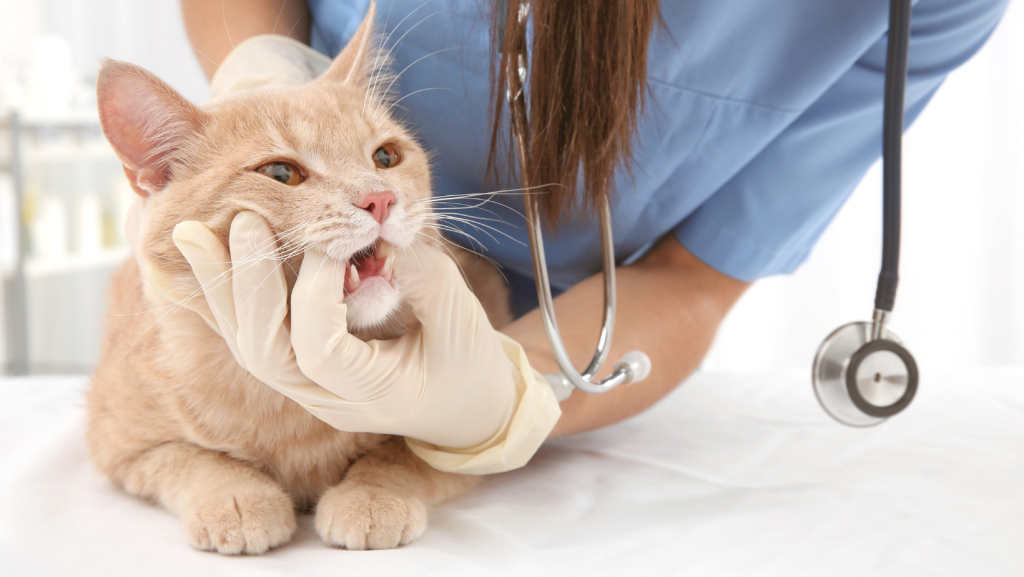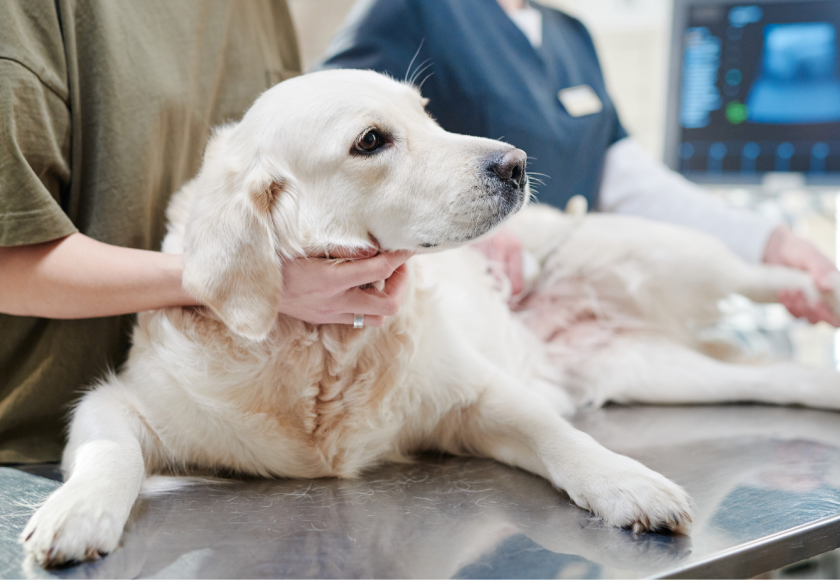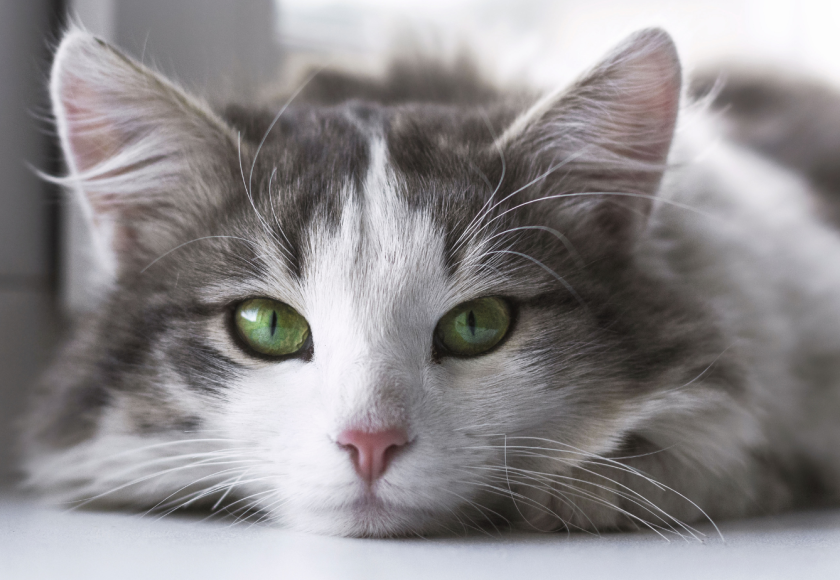Every caring and responsible cat owner wants to ensure that their cat lives as long and comfortably as possible. Cat dental care is essential to prevent major health problems and keep your cat feeling good.
With the rapid development of veterinary dentistry, cat dental care and hygiene are becoming easier. Not all cats like dental care, but a responsible owner should find a method that is most convenient and suitable for their four-legged family member.
Table of contents
Why is it important to brush cats’ teeth?
Enamel damage, gum inflammation, bad breath, tooth loss, and other dental problems can result from poor oral care in cats. Most often, owners notice darkened teeth and red gums. Dark spots on the crown of the tooth are dental plaque, and red gums are a sign of periodontitis.
Cats need their teeth not only for eating, but also for carrying objects, toys, and prey, protecting themselves from danger, and other important functions. Bad teeth and other oral problems can eventually cause not only direct ailments, but also indirect disorders of internal organs. Poor nutrition due to painful and bad teeth leads to weight loss, rough coat, and liver and kidney disease in cats.
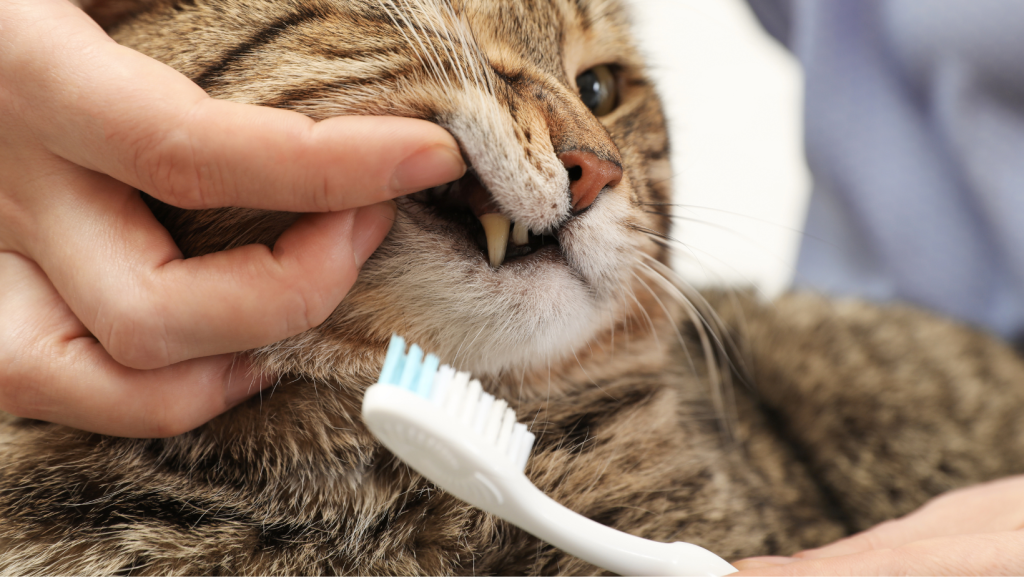
What are cat teeth stones?
Cat tartar is plaque that forms due to an excessive amount of bad bacteria and protein in the mouth. It is crystallized plaque. Owners can visually identify tartar by its color.
Tartar can be yellow, brown, or gray in color. Cat tartar is most often found on the back teeth (molars), and later on the canines. Tartar causes many unpleasant symptoms for both the cat and its owners.
What complications do cat teeth stones cause?
Tartar causes the gums to itch, so cats try to scratch them and damage their surroundings even more. Bleeding and festering gums can cause cats a lot of pain.
Cats often rub their noses against their owners, who then often notice unpleasant odors. Sometimes the consequences of tartar can lead to complications such as sepsis, jaw and skull bone decay, softness, and fractures. Cat owners should take great care of their cats’ teeth, as not all tartar is visible to cats; sometimes it forms not on the crown of the tooth, but on the neck under the gums.
Cat teeth can be cleaned at a veterinary clinic by specialists or at home with additional tools.
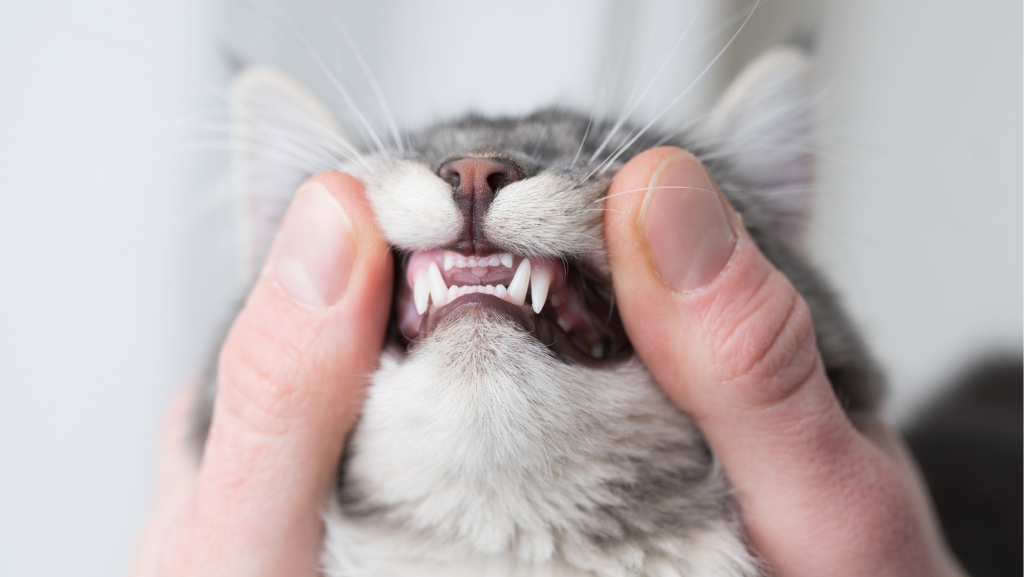
How is cat teeth cleaning performed at a veterinary clinic?
During cat teeth cleaning, tartar and other deposits are removed from the cat’s teeth and the tooth enamel is polished. In order to completely remove tartar and achieve the best results, cats are given general anesthesia during teeth cleaning.
Cleaning cats’ teeth without anesthesia can hurt them both physically and psychologically. Tartar removal for cats is done using a special device called an ultrasonic scaler. With the right equipment, the cat’s teeth are not damaged and the bacteria that cause tartar are destroyed.
To ensure the health of the animal, we always recommend general blood tests before cleaning cats’ teeth.
Cleaning your cat’s teeth at home
After cleaning teeth and removing plaque, veterinary dentists advise cat owners to use special products at home to extend the interval between dental cleaning procedures at the clinic. There is a wide variety of cat dental cleaning products available, so owners can consult with a specialist to choose the most suitable ones for their pet’s mouth size and lifestyle:
- Cat toothpaste and toothbrush. Cat toothpaste comes in a wide variety of flavors to make it easier for cats to undergo this procedure at home. Veterinary dentists recommend choosing small, very soft special brushes to ensure the most thorough cleaning of the teeth.
- Teeth cleaning wipes. This product is useful if your cat refuses to be brushed and it is easier for you to reach into your cat’s mouth with your little finger. Teeth cleaning wipes reduce the growth of harmful bacteria on tooth enamel.
- Liquid for preventing plaque in cats. A special liquid can be added to the cat’s drinking water. These types of products also reduce the growth of harmful bacteria on tooth enamel.
- Tooth gel. This type of dental care product is often the most convenient for owners, as it only needs to be applied to the teeth without brushing. This method protects the owner’s fingers, as the gel is applied with a special pipette.
- Special chews. Veterinarians recommend using special chews to prevent plaque buildup in dogs, as they help to naturally remove existing plaque and prevent new plaque from forming.
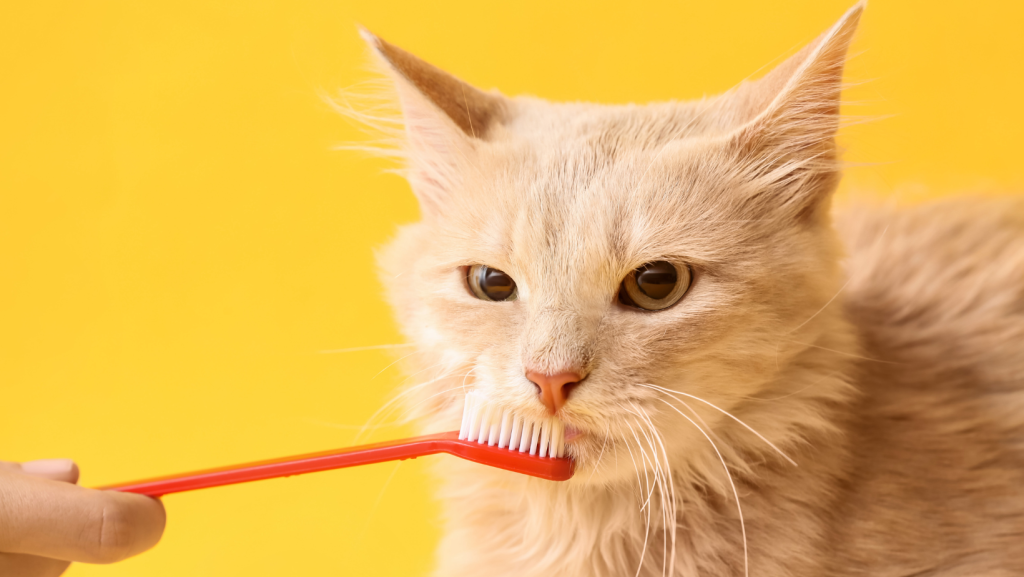
How much does it cost to clean a cat’s teeth?
The cost of cleaning a cat’s teeth is calculated individually based on the condition of each patient and the needs of its owner. The cost of cleaning a cat’s teeth at the Begemotas veterinary clinic ranges from €30 to €60, excluding the cost of medication used during and after cleaning.
The cost of teeth cleaning for cats may vary depending on the amount of plaque, gum damage, and the level of damage to the teeth themselves. All additional procedures such as tooth extraction, root canal treatment, broken tooth restoration, gum damage treatment, and similar procedures are charged separately. The cost of cleaning a cat’s teeth does not include blood tests or inhalation anesthesia.
Cat teeth cleaning at the Begemotas veterinary clinic
The Begemotas Veterinary Medicine Center offers various oral cavity and dental treatment procedures for cats. At the Begemotas Clinic, dentistry and stomatology specialists not only diagnose dental diseases and problems, but also provide treatment and prophylaxis. Veterinary dentists can perform the following procedures for cats:
- Professional teeth cleaning and hygiene
- Therapeutic treatment of the oral cavity
- Aesthetic filling to restore broken teeth
- Extraction of milk teeth and permanent teeth
- Endodontic root canal treatment
- Jaw plastic surgery and fracture surgery
If your beloved pet has oral cavity problems, please do not hesitate to contact our veterinary team.
